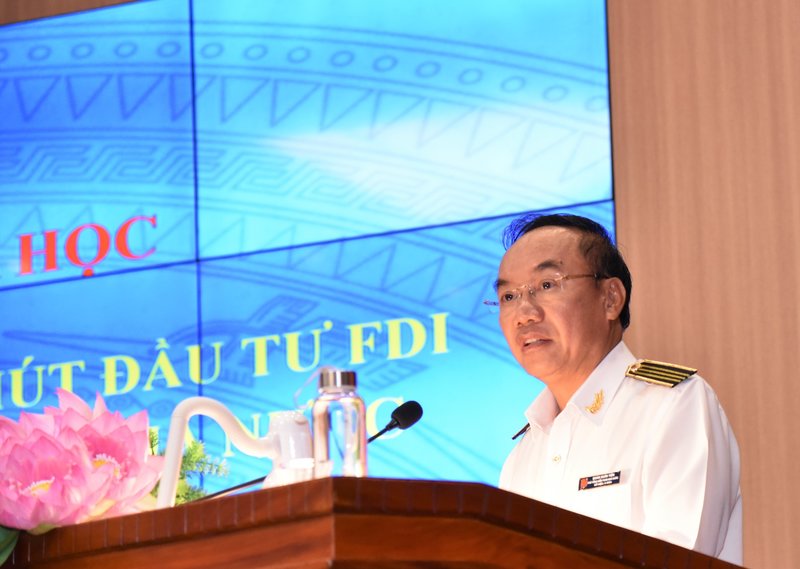Transfer pricing among foreign-invested firms operating in Vietnam is increasing at an alarming rate, evidenced by the fact that while foreign-invested companies report losses, the majority of their Vietnamese peers in the same fields are generating profits, especially in garment and footwear, according to Doan Xuan Tien, deputy State Auditor General.
 |
|
Deputy State Auditor General Doan Xuan Tien says transfer pricing among FDI firms operating in Vietnam is increasing at an alarming rate. Photo: VGP.
|
So far, nearly 50% of foreign direct investment (FDI) firms in Vietnam said they are operating at a loss, said Tien at a conference on June 9, for which he attributed transfer pricing, among other reasons, to this issue, the governmental portal reported.
The issue causes losses of up to hundreds of millions of US dollars to the state budget, Tien stressed, adding FDI firms make up 20% of GDP, 25% of total social investment, 40% of industrial production value, and 50% of external trade.
Many investors are looking for ways to transfer obsolete machines and equipment to recipient countries, including Vietnam, Tien added.
The consequence is that it is very difficult to evaluate the real value of these machines. This practice implies environmental pollution, low product quality and high costs, he stated.
Tien attributed the growing trend of transfer pricing to Vietnam’s shortcomings in managing FDI projects, including a lack of consistency between the target and action to attract FDI; the country’s incentive policies to attract FDI do not base on competitive advantages of each province and city; ambiguity in administrative process to apply for such policies; among others.
Notably, in Ho Chi Minh City, nearly 60% out of 3,500 FDI firms have been reporting losses for many years, and in Binh Duong province, the rate is 50% in the 2006 – 2011 period.
Tien, however, noted while FDI firms continue to suffer losses, they keep expanding operations here.
Tien pointed to an example of Coca-Cola, saying since its first presence in Vietnam in 1992, the US firm has reported an accumulated loss of VND3.76 trillion (US$162.93 million) by December 2012, exceeding its original investment capital. In fact, Coca-Cola’s production capacity has been growing at an average pace of 20% annually.
Another case is Metro Vietnam, which has increased its registered capital to US$301 million after 12 years operating in the country. However, the firm reported accumulated losses of VND1.65 trillion (US$71.5 million), and a profit of VND173 billion (US$7.5 million) in 2010. Nevertheless, Metro Vietnam has expanded nationwide with 19 retail supermarkets.
Nguyen Mai, chairman of the Association of Foreign Invested Enterprises (VAFIE), commented outdated machines and technologies used by FDI firms are causing overuse of energy and severe level of pollution.
Deputy State Auditor General Tien suggested it is essential for State Audit of Vietnam to enhance efficiency during the auditing process, while there should be more clarity in legal framework regarding the audit.
Nguyen Thi Phuong Hoa from the National Economics University suggested government agencies could disclose the audit results related to cases of transfer pricing, as a warning to those violating transfer pricing regulations.
Hoa referred to UK experience in dealing with Starbuck’s act of transfer pricing for 13 years. The publication of the audit results led to a widespread boycott by UK customers towards Starbuck and this business eventually had to repay the tax arrears of between US$6.3 and US$7.6 million in 2012. Hanoitimes
Hai Yen

Transfer pricing focus in store for overseas-invested groups
The extent of economic restraints caused by COVID-19 now cannot be known, but the Vietnamese economy will not grow as was estimated until recently.

Aligning transfer pricing with international norms
The growth of FIEs in Vietnam has recently raised increasingly complicated tax concerns. These problems arise primarily from the practical issues of determining the transaction price between FIEs and their related parties.